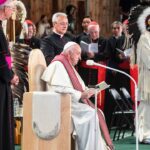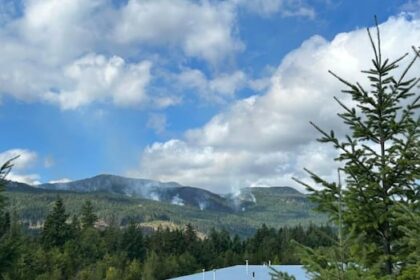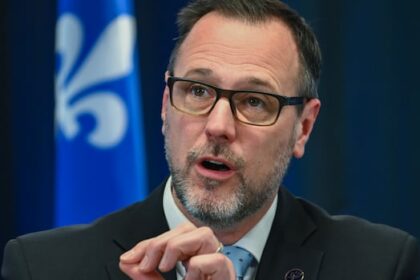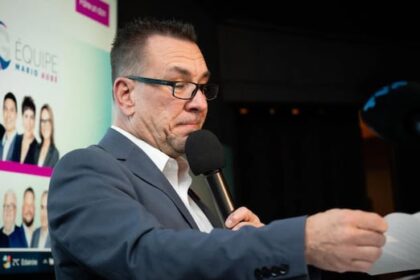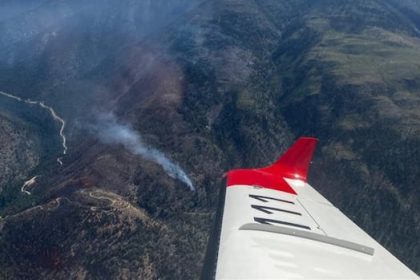NLThe NunatuKavut community council says it willing to fight against Memorial University for leaving the group out of its draft Indigenous verification policy. NunatuKavut President Todd Russell says it’s an attack on the communityAbby Cole · CBC News · Posted: Apr 22, 2025 9:40 AM EDT | Last Updated: 6 hours agoNunatuKavut Community Council president Todd Russell says he’s going to fight Memorial University over a new policy that won’t recognize his group. (Jon Gaudi/CBC)The NunatuKavut Community Council says it’s willing to fight against Memorial University for leaving the group out of its new Indigenous verification policy. NunatuKavut president Todd Russell says the draft policy was written “so that NunatuKavut Inuit would be basically erased as an Indigenous people.”NunatuKavut represents 6,000 self-identifying Inuit in south and central Labrador. The group, which identified itself as the Labrador Métis Nation until 2010, is not recognized by Inuit Tapiriit Kanatami, the national representative organization for the Inuit in Canada.Russell says he’s not shocked by MUN’s decision. He says the university informed him that NunatuKavut would be excluded from consultations with Indigenous groups. The new policy draft comes after former university president Vianne Timmons was removed for claiming to be part of an unrecognized Mi’kmaq band for years. Now, the university will require Indigenous students and faculty to verify their Indigenous identity to access grants, scholarships and jobs. Self-declaration is no longer sufficient for obtaining Indigenous opportunities. A committee will look at an applicant’s official documentation or a statement of relationality and a letter from an official representative from a recognized Indigenous collective in Canada. The collectives must be recognized under Section 35 of the Canadian Constitution Act, or be recognized as Indigenous by their federally-recognized Indigenous neighbours. Catharyn Andersen, MUN’s vice-president Indigenous, told CBC Radio’s On The Go that NunatuKavut wouldn’t meet the criteria. LISTEN | Krissy Holmes speaks with NunatuKavut president about MUN’s new policy: On The Go17:15MUN’s Indigenous verification policyMemorial University is looking for input on its new Indigenous verification policy. The president of NunatuKavut -who represents 6000 Labradorians – joins us in the On The Go studio to share why he thinks the policy is biased by design. (Krissy Holmes with Todd Russell)Russell says he will be fighting the university’s decision because NunatuKavut has other Indigenous recognition.”We will fight in the halls of Memorial University,” said Russell. “We will occupy that university.”In 2019, the federal government signed a memorandum of understanding on self-determination with NunatuKavut. The MOU outlines both parties’ goals to strengthen their relationship and recognize their rights. However, it’s a non-binding agreement, and doesn’t give NunatuKavut rights. Instead, it outlines the intention to make a decision in the future.Nunatsiavut President Johannes Lampe supports Memorial University’s new policy and says it protects the rights of Inuit. (Justin Tang/The Canadian Press)But, Russell says the MOU is part of the process of obtaining Section 35 rights, and that NunatuKavut is on a journey to obtaining them, just as other Indigenous groups have to do. Russell also disagrees with the second option to be recognized by Indigenous neighbours, stating that the university should know about the unfavourable dynamics between NunatuKavut and its neighbours like the Nunatsiavut government. “That is lunacy to say that your neighbour actually has authority over your rights, your identity,” he said.Movement against self-identificationJohannes Lampe, president of the Nunatsiavut government, told CBC Radio’s Labrador Morning that he is in favour of MUN’s new policy. “It affirms a principle that Inuit and other Indigenous peoples have always known,” he said. Lampe says the policy protects the rights to Indigenous specific opportunities, and will mean a safer and fairer academic environment for Inuit youth. “Memorial is showing leadership that we hope other institutions will follow,” he said.Lampe says the Nunatsiavut government will be providing feedback on the draft policy. Andersen says the consultation that informed the university was led by the First People’s Group, an Indigenous advisory firm. She says the policy is part of a cross-country Indigenous movement to move beyond Indigenous self-identification. “Indigenous people have been calling for this,” she said. Download our free CBC News app to sign up for push alerts for CBC Newfoundland and Labrador. Click here to visit our landing page.ABOUT THE AUTHORAbby Cole is a journalist with CBC News in St. John’s. She can be reached at abby.cole@cbc.ca.With files from On The Go and Labrador Morning.
Friday, 6 Feb 2026
Canada – The Illusion
Search
Have an existing account?
Sign In
© 2022 Foxiz News Network. Ruby Design Company. All Rights Reserved.
You May also Like
- More News:
- history
- Standing Bear Network
- John Gonzalez
- ᐊᔭᐦᑊ ayahp — It happened
- Creation
- Beneath the Water
- Olympic gold medal
- Jim Thorpe
- type O blood
- the bringer of life
- Raven
- Wás’agi
- NoiseCat
- 'Sugarcane'
- The rivers still sing
- ᑲᓂᐸᐏᐟ ᒪᐢᑿ
- ᐅᑳᐤ okâw — We remember
- ᐊᓂᓈᐯᐃᐧᐣ aninâpêwin — Truth
- This is what it means to be human.
- Nokoma



